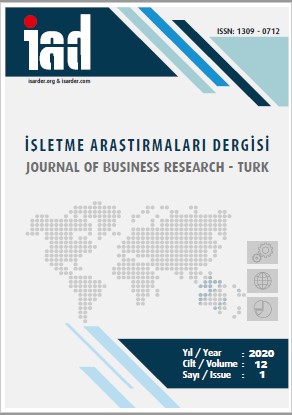The Effect of US Monetary Policy on the Credit Growth of Emerging Market Economies
The Effect of US Monetary Policy on the Credit Growth of Emerging Market Economies
Author(s): Selma ÖNER, Cansu ŞARKAYA İÇELLİOĞLUSubject(s): National Economy, Supranational / Global Economy, Economic policy, Financial Markets
Published by: Orhan Sağçolak
Keywords: FED Policy Rates; Emerging Market Economies; Credit Growth; Financial Integration;
Summary/Abstract: Purpose - Monetary policy decisions of advanced economies have effects on the emerging market economies through monetary transmission mechanisms. The purpose of this study is to examine the effect of US monetary policy on the credit growth of emerging market economies. Methodology - For this purpose, the effects of FED policy rates on the private non-financial credit to GDP ratios of selected emerging market economies are analysed by panel data. The study comprises quarterly data over the period of 1990-2018. Austria, Brazil, China, Greece, India, Poland, Portugal, Russia, and Turkey are determined as representatives of emerging market economies. The Seemingly Unrelated Regression (SUR) is used for model estimation Findings - According to the results, while FED reduces policy rates, credit markets of developing countries grow. However, slope and intercept parameters of the regression model are not identical for all countries. In other words, the sensitivity of national credit markets to FED policy rates varies under the influences of economic, legal and political environments of the countries.
Journal: İşletme Araştırmaları Dergisi
- Issue Year: 12/2020
- Issue No: 1
- Page Range: 18-27
- Page Count: 10
- Language: English

